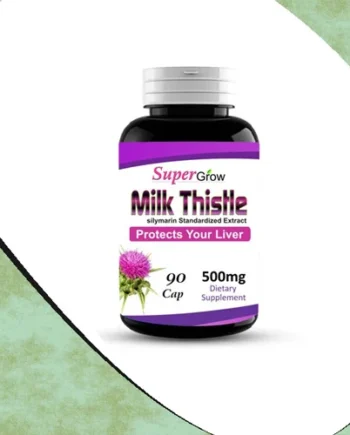Overview
Flaxseed oil, also known as linseed oil, is a nutrient-rich oil derived from the seeds of the flax plant (Linum usitatissimum). It is highly regarded for its abundance of health-promoting properties and nutritional composition. One of the key components of flaxseed oil is its high concentration of alpha-linolenic acid (ALA), an essential omega-3 fatty acid. Omega-3 fatty acids play a crucial role in supporting brain function, promoting heart health, and reducing inflammation in the body. Flaxseed oil is one of the best plant-based sources of omega-3 fatty acids.
Benefits
The anti-inflammatory activity and omega-3 fatty acids in flaxseed oil may help hair growth. It may moisturise the damaged hair after application. It may also help increase the volume of hair. In addition, it may help soothe the scalp.
Flaxseed oil contains polyunsaturated fatty acids, linolenic acids, gamma-linolenic acid, and alpha-linolenic acid. These molecules are an essential part of our skin but are usually deficient in our diet. A healthy intake of flaxseed oil with a proper consultation from a nutritionist may help you fix these deficiencies. It may be appropriate for all skin types, including oily, dry and normal. Psoriasis and sunburns may also recover faster with flaxseed oil.
Flaxseed oil lubricates the colon and works as a natural laxative, it’s excellent at keeping things moving in the digestive system. By helping your body to get rid of food and wastes more quickly, it helps your body to detoxify and shed excess weight.
Alpha-linolenic acid present in the flaxseed oil may help reduce triglycerides. It may also lower the very low-density lipoproteins (VLDL) or bad cholesterol in the liver.
Flaxseed oil contains ALA, which may lower the risk of heart disease through various biological pathways. For example, it may help regulate platelet function, blood vessel health, inflammation, and arrhythmia (irregular heartbeat)
Haemorrhoids are a condition characterized by swollen and inflammatory veins located around the anus or in the lower part of the body. Flaxseed oil may facilitate stool passage in the intestines due to its fibrous structure. It may also be beneficial for constipation.
Flaxseed oil contains alpha-linolenic acid (ALA), which may control breast cancer growth. It may help to lower the estrogen receptor, which might help stop the growth of cancer cells in the breast. Flaxseed also contains lignans which show antioxidant properties. Due to their estrogen-like activity, lignans resemble the effects of the hormone estrogen. These are helpful in estrogen metabolism, which is related to ovarian cancer and improved health. It may also be helpful in colon and skin cancer.
Generally, a deficiency of essential fatty acids results in poor wound healing. Flaxseed oil is a rich source of essential fatty acids with linoleic acid (omega-6) and α-linolenic acid (omega-3). These components may regulate prostaglandin synthesis, which may fasten wound healing.
Gout is a form of arthritis with symptoms such as pain, redness, tenderness and swelling in one or more joints, especially in one or both of the big toes. Alpha-linolenic acid in flaxseed may help reduce inflammation in the joints. It may also reduce the cholesterol level raised by gout. Flaxseed oil in gout may reduce swelling and joint pain.
How To Consume
- Salad dressings: Use flaxseed oil as a base for homemade salad dressings. Combine it with vinegar, lemon juice, herbs, and spices to create a healthy and flavorful dressing.
- Smoothies: Add a tablespoon of flaxseed oil to your favorite smoothie recipes. It can enhance the nutritional profile by providing a dose of omega-3 fatty acids and a subtle nutty flavor.
- Drizzle over cooked foods: After cooking your meals, drizzle a small amount of flaxseed oil over roasted vegetables, grilled fish, or cooked grains to add flavor and nutritional benefits.
- Substitute for other oils: Replace other oils, such as vegetable oil or olive oil, with flaxseed oil in recipes that don’t require high-heat cooking. It works well in sauces, dips, and marinades.
- Baking: Incorporate flaxseed oil into your baked goods, such as muffins, bread, or pancakes. Use it as a substitute for butter or other oils to increase the omega-3 content and create a moist texture.
- Topping for yogurt or oatmeal: Stir a teaspoon or two of flaxseed oil into plain yogurt or oatmeal for added nutritional value. It can lend a pleasant nutty taste and boost your intake of essential fatty acids.
- Cold soups: Use flaxseed oil to enhance the flavor and nutritional value of cold soups like gazpacho. Simply drizzle a small amount of oil over the soup before serving.
- Energy balls or bars: Add flaxseed oil to homemade energy balls or bars for an extra nutritional boost. It can help bind the ingredients together while providing omega-3 fatty acids.
Why Choose Us
Our Oils are obtained by using the mechanism of cold pressing. The cold-pressed oils are extracted from nuts, seeds, and peels of fruits with the help of steel pressers. Unlike others our oils do not use heat for extractions and are pressed at low temperatures, making them one of the bests. The seeds are crushed raw without roasting. It helps to retain the aroma, flavours, and healthy nutrition. The zero involvement of heat in the cold-pressed method makes it a better choice. Although it is a time-consuming process, the quality is much better when compared to the other oils. Besides retention, natural aroma, nutrition, flavour, and texture are its other highlights.
On the contrary, the refined oil-making process involves filtration through various unwanted and hazardous chemicals and heat, making the oils look light and shiny. This mechanized process makes the oilseed devoid of natural organic ingredients that our body needs daily. Refined oil has a lot of fat and is vacant of nutrition.3.
-
RS1,300
RS1,600Hair Guard Oil 150 ml ہئیر گارڈ
-
RS400 – RS1,400
Soybean Oil روغن سویا بین















Reviews
There are no reviews yet.